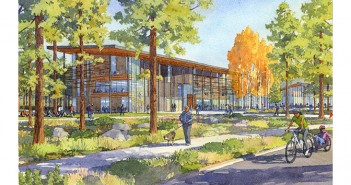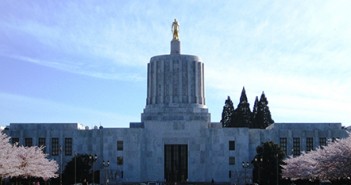On the sixth anniversary of the Supreme Court’s Citizen’s United decision, OSPIRG Foundation released a report highlighting the sizable disparity between large donors and small donors in Oregon’s elections. The report finds that in the 2014 election season, just over a thousand large donors contributed nearly ten times more than all small donors combined–a group comprised of at least 50,000 Oregonians. “In school we are taught that every person has one voice and one vote, but when large donors are able to amplify their opinions through their donations, their voices threaten to drown out the rest of us. Today, the size of your wallet too often determines the volume of your voice, and it’s undermining the health of our democracy”, said David Rosenfeld, executive director of OSPIRG Foundation and author of Oregon’s Multi-Million Dollar Democracy. Among the report’s findings: Between 46,000 and 91,000 donors contributed $100 or less to Oregon candidates and ballot initiatives in 2014, totaling $6.5 million. In contrast, the approximately 1,000 donors that gave $5,000 or more contributed over $64 million, or nearly ten times as much as all small donors combined. Out-of-state donors comprised only about a third of this group of donors, but over two-thirds of the giving ($44M). On average, each of these top donors gave more than 500 times that that of one $100 donor. “OSPIRG Foundation’s report demonstrates how the average Oregonian’s voice is being drowned out in our political system by wealthy donors. It’s time to level the playing field and ensure that everyone has an equal voice in our political process,” said Kitty Piercy, Mayor of Eugene. The OSPIRG Foundation report calls for, among other reforms, efforts to amplify the voices of small donors through the following: Match small contributions with public funds. The country’s largest city – New York – has seen encouraging success with such a program since the 1980s, which matches the first $175 of donations from city residents at a six-to-one ratio. After the 2013 general election, the winners of 54 out of the 59 open elected positions participated in the program, with 61% of all funds raised coming from small donors, costing just 0.06% of the city’s 2013 budget. Small donor vouchers. Seattle voters just approved a new program to boost the power of small donors by distributing four $25 vouchers to every voter in the city, which voters can choose to contribute to the city candidate(s) of their choosing. Enhance Oregon’s political tax credit. Oregon’s political tax credit already allows taxpayers to receive up to a $50 tax credit per year ($100 per household) for political contributions. Streamlining the program so that taxpayers could expedite their tax credit could increase the participation of small donors. “By amplifying the power of small donors, and empowering candidates who would prefer to raise money from ordinary people rather than wealthy interests, we can help restore a democracy by and for the people,” said Kate Titus, executive director of Common Cause. With public debate around important issues often dominated by special interests pursing their own narrow agendas, OSPIRG Foundation offers an independent voice that works on behalf of the public interest. OSPURG Foundation, a 501(c)(3) organization, works to protect consumers and promote good government. We investigate problems, craft solutions, educate the public, and offer meaningful opportunities for civic participation. Maddie Kusch-Kavanagh, Campaign Organizer, 513-254-3656, madeline@ospirg.org











